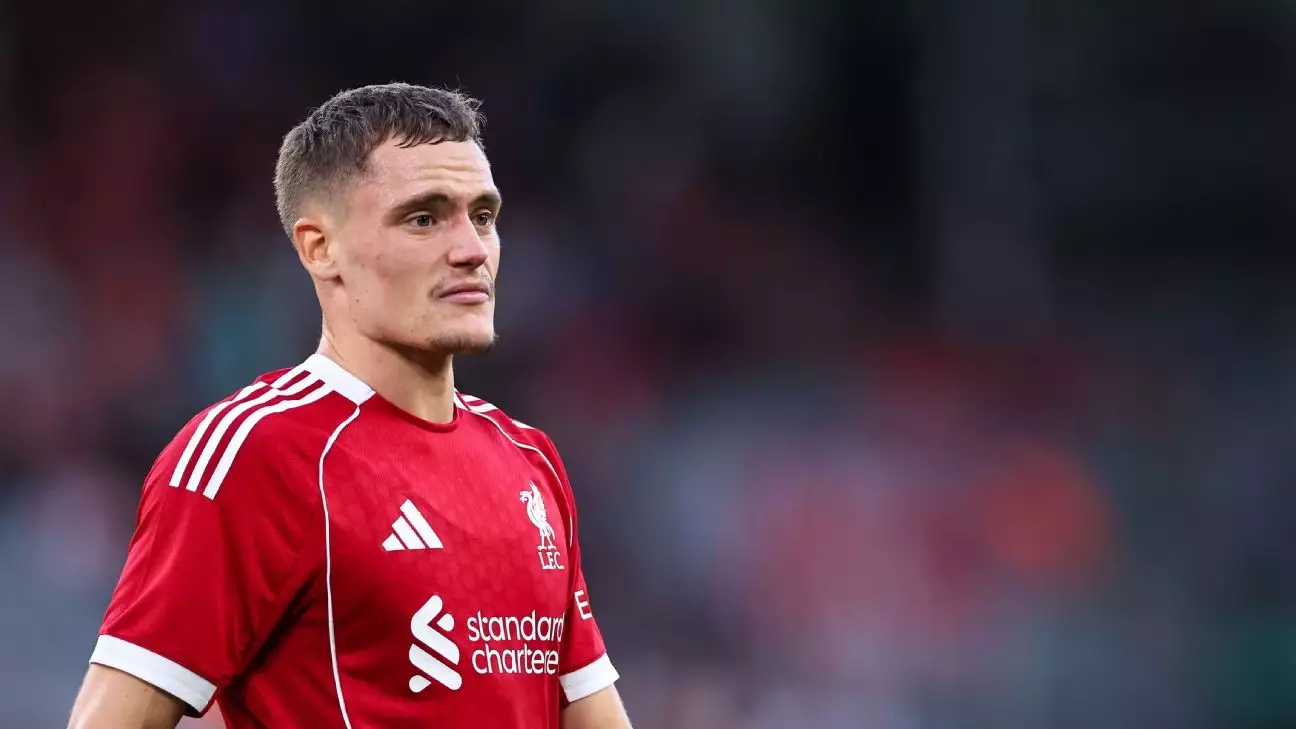Liverpool’s recent preseason performance under Arne Slot signals a pivotal transition for the club—one that emphasizes adaptability, innovation, and a willingness to reinvent their style of play. Slot’s candid acknowledgment of the void left by Trent Alexander-Arnold’s departure to Real Madrid underscores a broader philosophy: the end of an era does not mean the end of ambition. Instead, it presents an opportunity to reimagine how the team approaches creativity and tactical flexibility.
The introduction of Florian Wirtz embodies this shift. Rather than attempting to replace Alexander-Arnold through traditional means—simply replicating his crossing ability—the club is embracing a new vision. Wirtz’s creative influence is expected to bring a fresh dimension to Liverpool’s final third play, especially now that traditional source of innovation from the full-back position has left. Slot’s emphasis on Wirtz’s “creativity in the final third” highlights a strategic move toward midfield and attack-oriented ingenuity, signaling a more fluid and unpredictable style of play that is less dependent on individual players and more on collective adaptability.
This evolution invites a broader reflection on what it means to sustain a high-caliber club in modern football. The game’s tactical landscape continues to evolve at a rapid pace, demanding that clubs eschew static identities in favor of dynamic systems responsive to personnel changes. Liverpool’s approach demonstrates a maturity rooted in embracing change rather than mourning its departure—a mindset that will be crucial in the fiercely competitive Premier League.
Building a New Identity Amidst Uncertainty
While the results of the friendly matches reveal promising signs of cohesion, the vulnerabilities remain evident. With key defenders like Van Dijk absent and others nursing injuries, the team’s defensive stability appears fragile. The acknowledgment of conceding set-piece goals exposes a continuing area of concern, particularly ahead of fixtures against formidable opponents like Crystal Palace. It becomes clear that Liverpool is still in the process of constructing a resilient, well-rounded squad capable of weathering the storm of the demanding Premier League season.
Despite these defensive lapses, the attack looks promising. Goals from Salah, Gakpo, and others reflect a team capable of generating scoring opportunities, even amidst uncertainty. The presence of young talents like Rio Ngumoha and Ben Doak scoring early in the second-string game hints at a pipeline of promising players eager to make their mark. Their performances suggest that the club is investing in youth, trusting emerging talent to sustain Liverpool’s competitive edge.
Moreover, the respectful homage to Diogo Jota signifies a club rooted in community, memory, and unity. Such gestures reinforce that beyond tactics and transfers, Liverpool’s identity remains deeply anchored in tradition and collective perseverance. Recognizing individual contributions while staying rooted in shared values is perhaps what will ultimately guide their journey through a challenging season.
Strategic Ambitions and the Road Ahead
Transitioning from preseason optimism to competitive realities will require sharper focus and strategic acumen. Slot’s comments about the team reducing chances and improving defensive discipline highlight a clear area for targeted development. The club’s willingness to confront weaknesses openly suggests a pragmatic approach—one that values incremental improvement over superficial optimism.
Furthermore, the early integration of new signings indicates that Liverpool aims to hit the ground running. The signings’ performances in friendly matches provide a glimpse of what might be possible if these players acclimate quickly and mesh with the existing squad mentality. Wirtz’s technological and creative prowess, combined with the grit and experience of established players, could catalyze a more expansive, possession-oriented style of football.
However, the challenge lies in translating preseason promise into consistent results at the highest level. The club must balance nurturing young talent and integrating new signings with maintaining competitive resilience. It’s a delicate equilibrium demanding visionary leadership, strategic patience, and a collective commitment to evolve.


Leave a Reply